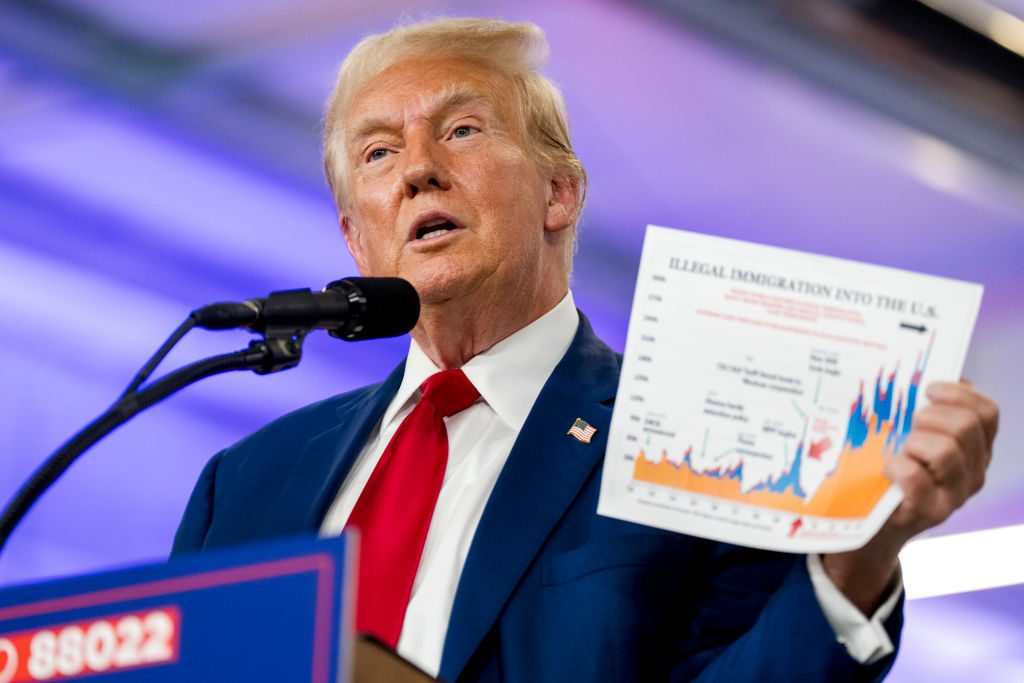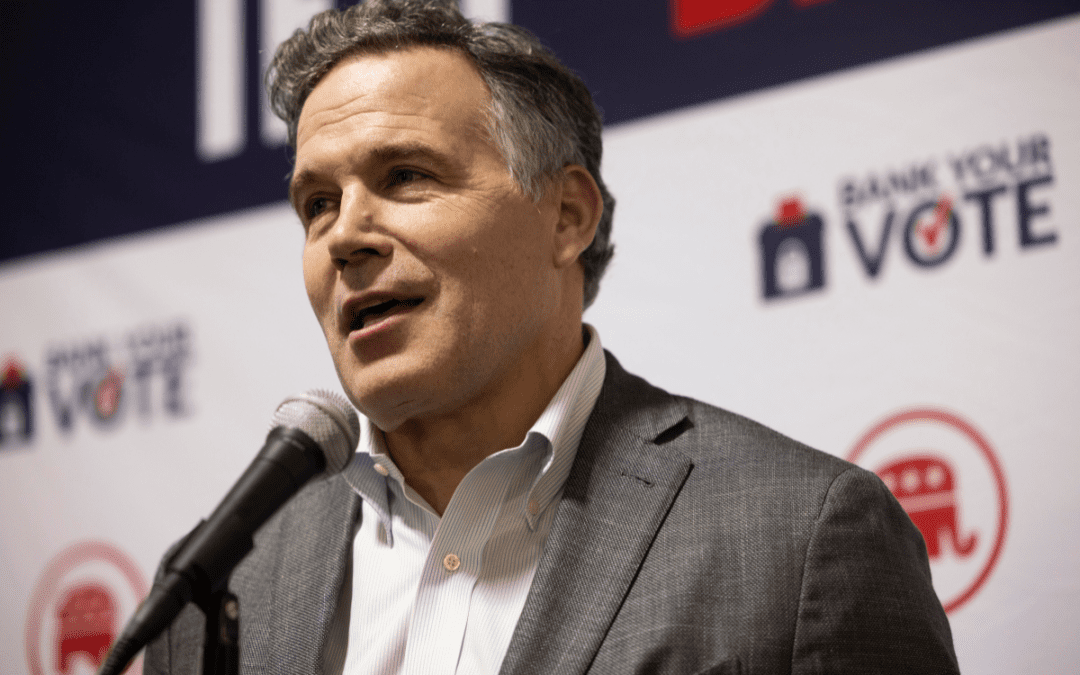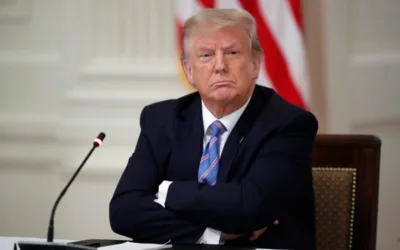
HOWELL, MICHIGAN - AUGUST 20: Republican presidential candidate, former U.S. President Donald Trump speaks while holding a document about illegal immigration during a visit to the Livingston County Sheriff's Office on August 20, 2024 in Howell, Michigan. Trump is visiting Michigan this week to discuss "crime and safety" during a campaign event. (Photo by Nic Antaya/Getty Images)
In Pennsylvania, only people who meet various requirements, including citizenship, can register to vote. Violators are subject to penalties, including imprisonment and deportation.
U.S. law bans noncitizens from voting in federal elections, such as races for president, U.S. Senate and U.S. House of Representatives. Like many states, Pennsylvania also prohibits noncitizens from voting in elections for state and local offices.
A 1996 federal law allows fines and imprisonment for up to a year for noncitizens who vote in federal elections. Violators can also be deported. When people in the U.S. register to vote, they swear under penalty of perjury that they are U.S. citizens, whether they’re born here or naturalized.
In Pennsylvania, only people who meet various requirements, including citizenship, can register to vote. Under the state constitution, a voter must “have been a citizen of the United States at least one month,” in addition to meeting state and voting district residency requirements.
If a noncitizen attempted to vote in a Pennsylvania election, they would be subject to penalties, including imprisonment and deportation, said Ellen Lyon, a spokesperson for the Pennsylvania Department of State.
The department is “not aware of any instances of noncitizens registering to vote or voting in any recent elections,” Lyon said in an email to The Associated Press.
Kyle Miller, Pennsylvania policy strategist at Protect Democracy, said there has been a lot of misinformation around noncitizen voting.
“Our county election directors do a fantastic job of making sure that noncitizens are not casting ballots,” he said. “In a very rare instance where that would happen, those ballots would not be counted as a proper vote.”
He said personal information is checked against multiple databases to ensure people are who they say they are.
Mythbusting GOP Claims of Undocumented Immigrants Voting
In recent months, the potential of immigrants voting illegally in the U.S. has erupted into a top election-year issue for some Republicans. Former president Donald Trump’s baseless claims of voter fraud are routinely based on myths about undocumented immigrants voting in mass numbers.
This has resulted in Republicans trying to push through laws that require proof of citizenship to vote, a hurdle that even eligible voters have trouble clearing since large numbers of voters may not be in possession of, or have trouble accessing documents like birth certificates and U.S. passports.
Studies show noncitizens aren’t illegally voting in high numbers, according to Ron Hayduk, a political science professor at San Francisco State University who studies noncitizen voting laws.
While there have been some reports of noncitizens illegally casting ballots, such incidents are “infinitesimal,” Hayduk said.
Research by the Brennan Center for Justice in 2017 looked at 42 jurisdictions across the U.S. in the 2016 election, and reported that of 23.5 million votes cast, election officials found about 30 cases of potential noncitizen voting that they referred for prosecution or further investigation.
A Georgia audit of its voter rolls conducted in 2022 found fewer than 2,000 instances of noncitizens attempting to register to vote over the last 25 years, none of which succeeded. Millions of new Georgia voters registered during that time.
In 2017, Pennsylvania acknowledged that it had to fix a glitch that allowed noncitizen immigrants to register to vote when getting a driver’s license. At one point, state election officials said noncitizen immigrants may have cast 544 ballots illegally — that’s out of more than 93 million ballots in elections spanning 18 years, going back to 2000.
Claims that noncitizens are voting in large numbers have been “clearly debunked over and over and over again,” said Daniel Mallinson, an associate professor of public policy and administration at Penn State.
Though no state constitutions explicitly allow noncitizens to vote, some municipalities in California, Maryland and Vermont, as well as the District of Columbia, do allow voting by noncitizens in some local elections such as for school board and city council.
Keystone senior community editor Patrick Berkery contributed to this report.
Not sure if you’re registered to vote? Click here to check your voter registration status, see who’s on your ballot, and make a voting plan.

Did your absentee ballot count? Today the last day to fix it as Senate race remains tight
Democrats are pushing those who live in Philadelphia and the surrounding counties and voted by mail to check the status of their mail-in ballots and...

PA Democrats hold onto the PA House after Frank Burns wins reelection in deep-red district
PA House Democrats were able to pull off the unthinkable and hold onto the PA House by a 102-101 majority following Tuesday’s election results. It...

Republican David McCormick flips pivotal Pennsylvania Senate seat, ousts Bob Casey
The Associated Press called the race Thursday, though Casey did not concede. With votes still being counted, McCormick led Casey by about 31,000...

We asked, you answered: How do you feel about the 2024 election results
Our newsletter readers shared their thoughts on the outcome of the pivotal 2024 presidential election. Because we live in a democracy, we had an...

Harris says nation must accept election results while urging supporters to keep fighting
Harris delivered her remarks at Howard University, her alma mater and one of the country's most prominent historically Black schools, in the same...



